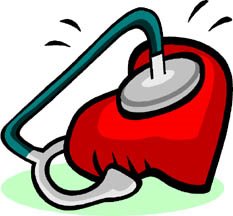Doctors usually prescribe Toprol and (maybe) a diuretic for high blood pressure to reduce body fluids. Diuretics help lower blood pressure but also leach out the magnesium, potassium in the body and raises homocysteine by 16% which can bring on Alzheimer's and a heart attack. Toprol raises her triglycerides and lowers her HDL (good) cholesterol which can lead to a heart attack.
If you are looking for natural ways to reduce your blood pressure, here are a few tips that might help.
Taking supplements is not the total answer to reducing blood pressure. But with a low-glycemic diet and daily exercise, it could be a part of the answer to get you off of high blood pressure medicines. Are you taking enough magnesium? As always, check with your doctor or a naturopathic doctor before you do anything different, but . . .
Magnesium has been shown to lower blood pressure.
Dr. Cohen wrote a book called, "The Magnesium Solution For High Blood Pressure." In it, Dr. Cohen looks at one probable underlying cause of high blood pressure -- magnesium deficiency. He describes how up to 75% of Americans are deficient in this mineral and as a consequence are sick in many ways. The average American only gets 40% of the Magnesium that it needs from diet alone. Doctors are widely ignorant about magnesium and tend to think of drugs as first resort rather than last. In the Journal of the American Medical Association, it was reported that over 90% of all doctors failed to look at a patients low magnesium levels even though some of them died of heart attacks from so low a level.
Dr. Cohen explains how magnesium is an essential micronutrient in maintaining suppleness in the walls of blood vessels. In magnesium deficiency, the vessels become stiffer and so do not absorb the blood pressure surges properly. “Evidence suggests that magnesium may play an important role in regulating blood pressure. Magnesium deficiency can cause metabolic changes that may contribute to heart attacks and strokes. There is also evidence that low body stores of magnesium increase the risk of abnormal heart rhythms, which may increase the risk of complications associated with a heart attack. Population surveys have associated higher blood levels of magnesium with lower risk of coronary heart disease.”
Magnesium is one of the body’s most important minerals. It is required as a cofactor in hundreds of enzymatic processes within cells. Magnesium is a major factor in relaxing the smooth muscles within the blood vessels, thereby reducing peripheral vascular resistance and blood pressure. It also stimulates nitric oxide, a mechanism at work when we exercise, helping to relax and dilate blood vessels. In addition, magnesium reduces nerve and muscle excitability, stabilizes cardiac conductivity, and influences neurochemical transmission. Magnesium also affects circulating levels of norepinephrine and the synthesis of serotonin and nitric oxide.
Indeed, because of magnesium’s primary role in blood pressure regulation, for decades scientists have called magnesium “nature’s calcium channel blocker” because magnesium directly offsets the constriction of blood vessels caused by calcium. Because drug companies cannot make money from a natural substance like magnesium, they have developed a whole group of drugs called calcium antagonists or calcium channel blockers to do what magnesium does. In 2000, doctors wrote more than 95 million prescriptions for calcium antagonists, including top sellers amlo-dipine (Norvasc), nifedipine (Procardia), diltiazem (Cardizem, Tiazac), and others at a total cost of more than $4.5 billion. These drugs are not only costly, but they can also cause side effects such as dizziness, palpitations, fatigue, tiredness, and swollen legs. Over a five year period, they shrink your brain and you could end up with Alzheimer's disease like my parents. Yet many doctors do not hesitate to prescribe these drugs because they were never taught about magnesium. While legions of pharmaceutical sales representatives bring stacks of studies and free samples of these drugs, no one pushes magnesium.
Fortunately, a growing number of doctors are now learning about magnesium. Sherry Rogers, MD, a highly respected integrative medicine physician, has written extensively about magnesium’s benefits for disorders caused by abnormal muscle constriction: “In order for a muscle to contract, it needs calcium. In order to relax, it needs magnesium.” Hypertension is one of the conditions for which Dr. Rogers recommends supplementing with magnesium.
Evidence-based studies have shown the same thing. A 1989 study published in the journal Hypertension found that taking 625 mg of magnesium daily produced significant reductions in blood pressure in 21 subjects. A study published in 1993 in the American Journal of Hypertension found that taking supplemental magnesium reduced average systolic blood pressure from 154 to 146 mm Hg and cut average diastolic blood pressure from 100 to 92 mm Hg.
A study published in the International Journal of Cardiology in 1996 found that taking 600 mg of magnesium daily reduced systolic blood pressure by an average of 7.6 mm Hg and diastolic pressure by an average of 3.8 mm Hg.23 In another double-blind, placebo-controlled study published in the British Journal of Nutrition in 1997, subjects who took 411-548 mg of magnesium daily experienced significant reductions in systolic and diastolic blood pressure.
Summary
Magnesium should be considered by anyone seeking to prevent or treat high blood pressure. The foundation for a healthy blood pressure consists of a healthy diet, adequate exercise, stress reduction, and sufficient amounts of potassium and magnesium. If you eat plentiful amounts of vegetables, you are likely getting plenty of potassium.
Foods rich in magnesium and often other important minerals include all sorts of nuts and seeds, whole grains, beans, and leafy green vegetables such spinach, broccoli, peas and artichoke. Note that processing foods often degrades their nutrient value. That means refined grains lose most of their magnesium. Freezing and canning, on the other hand, usually retain the original nutrients.
A wise and easier choice would be to supplement the diet with a balanced mineral, trace mineral and vitamin solution, because although there is an abundance of good quality calcium, vitamin d, and magnesium supplements on the market, caution must be exercised when deciding how much to take of each one in conjunction to the effect on the others. And remember, they have to be easily absorbed into the intestines to bring maximum benefits.
I take 700 mg. per day in a combination of multivitamin and a calcium supplement. There are different forms of magnesium such as magnesium sulfate, oxide, gluconate, lactate and citrate. Look for one with magnesium citrate as it is more soluble and, therefore, more easily absorbed than some of the other forms.
Magnesium can be used in concert with drugs for hypertension. Check with your doctor first. My brother knew an advanced yoga instructor who developed muscle tightness as a side effect of her anti-hypertensive medication. Supplementing with magnesium allowed her to reduce her medication dose, and her muscle tightness went away. If you ever get muscle cramps in you legs at night, magnesium might help relieve that too and get you a better nights sleep.
You can have your magnesium, potassium, arginine and other vitamin levels checked by getting a blood test. This might help you to determine what to do. In any case, taking more magnesium would be a good idea











 My StumbleUpon Page
My StumbleUpon Page





